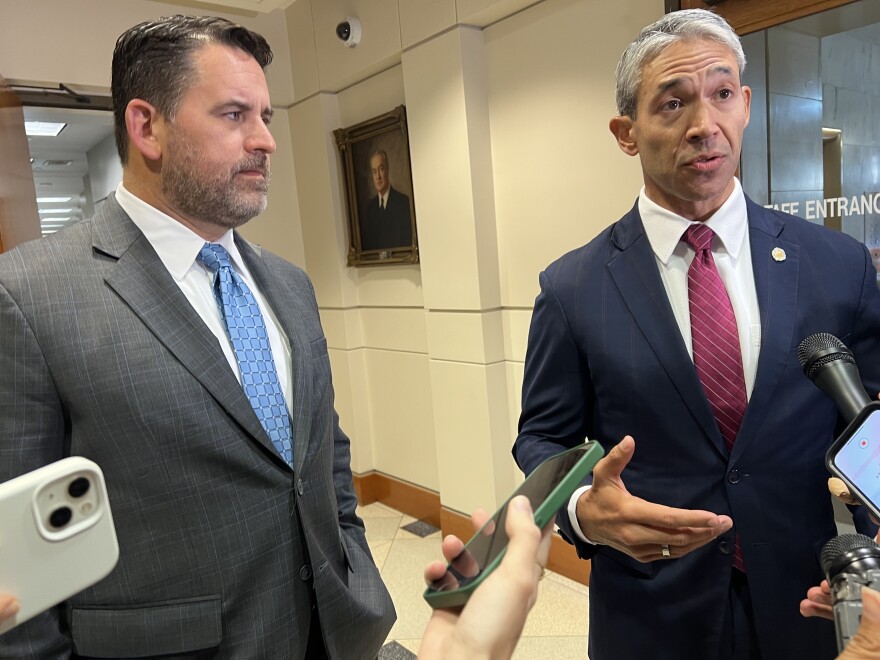A federal spending bill President Joe Biden signed into law last week included $650 million for the Federal Emergency Management Agency’s (FEMA) Shelter and Services Program, which has been used to pay cities and nonprofit organizations around the country to support migrant management.
FEMA has sent the city and local partners like Catholic Charities more than $100 million in reimbursements to operate the Migrant Resource Center (MRC) since it was established in 2022. City officials began to scramble in recent weeks to come up with contingency plans to fund the MRC after September, when federal funding to the city was expected to run out.
The new federal funding means the MRC might be able to keep operating with full federal support through the end of the year, but Mayor Ron Nirenberg said it wasn’t a guarantee.
“I was grateful to see that the border funding related to [the] Shelter and Services [Program] was in there, not in the levels that we had asked for or frankly need, but at least it’s something and it’s a start,” he said.
Nirenberg sent a letter to San Antonio’s congressional delegation and the Department of Homeland Security late last year that said the city needed an additional $57.5 million to ensure the facility could operate through December.
Nirenberg and District 4 Councilwoman Adriana Rocha Garcia both made separate in-person requests to Biden for more funding for the MRC in meetings with him in Brownsville and Washington D.C. in the last month.
“We have been communicating with FEMA, with the Department of Homeland Security broadly, and then, of course, with the White House about our need,” he said. “So they’re very acquainted with what’s going on in San Antonio.”

Congressman Henry Cuellar said the funding he helped acquire would be critical for communities like San Antonio.
“This important FEMA grant program is a lifeline to border communities like mine and supports community organizations as they aid migrants awaiting the outcome of their immigration proceedings,” Cuellar said. “While we fought for more money, we had to work against Republicans who wanted to zero out funding for the program entirely, which would have devastated nonprofits like Catholic Charities in San Antonio.
Nirenberg said he expects the city to learn more about how — and how many— federal dollars from the spending bill would make their way to San Antonio in the next several weeks.
“It’s really touch-and-go in terms of the level of funding that we have now,” Nirenberg said. “And that’s why we need more certainty with respect to the new funding that’s been allocated.”
For now, he said the city will have to continue planning for a situation where they don’t get enough, or any, funding from the federal government to keep the MRC going.
“In lieu of information about the new funding, we’re obviously going to have to continue our due diligence on contingencies,” Nirenberg said. “And that’s something that we’ll keep council engaged on.”
Contingency plans for operations of the MRC without new federal funding include reducing MRC costs, canceling and reallocating federal COVID-19 dollars from the American Rescue Plan Act, pulling funding from the city’s FEMA Reserve, or using city taxpayer dollars from the general fund.
During an early March discussion of the San Antonio City Council about the contingency plans, all members of the council and Nirneberg said it was the federal government’s responsibility to pay for a federal responsibility — immigration processing. Only a handful said they would be willing to use the city’s own dollars to support the MRC in a worst-case scenario.




